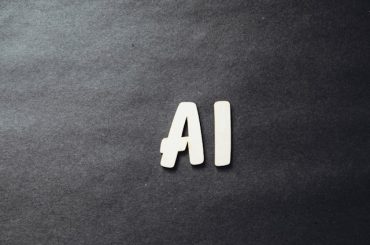In the realm of modern supply chain management, sourcing has transcended traditional boundaries, evolving into a strategic endeavor that leverages advanced technologies to optimize procurement practices. Beyond mere supplier discovery, sourcing now entails the strategic identification, evaluation, and engagement of suppliers based on predefined criteria, paving the way for the acquisition of high-quality products and services.
Historically, procurement operations relied heavily on manual efforts, rudimentary software tools, and cumbersome paperwork, leading to inefficiencies in time and resource utilization. These outdated practices resulted in challenges such as limited supplier options, opaque contract management, inadequate risk assessment, and the inability to analyze vast datasets effectively.
However, the advent of Artificial Intelligence (AI) has heralded a new era in procurement, disrupting conventional practices and unlocking unprecedented efficiencies in sourcing processes. By harnessing the power of AI technologies such as machine learning and predictive analytics, organizations can now transcend the constraints of traditional procurement methods and embrace a future where intelligent algorithms drive strategic supplier selection, optimize contract negotiations, and foster enduring supplier relationships.
In this article, we delve into AI’s transformative impact on sourcing within the supply chain management landscape. We explore how AI is reshaping procurement paradigms, enhancing decision-making capabilities, and revolutionizing the way organizations approach supplier management. By embracing AI-driven solutions, businesses can break free from the shackles of outdated procurement practices and embark on a journey towards a more agile, data-driven, and efficient sourcing ecosystem.
AI’s game-changing role in procurement
Building upon the transformative power of cutting-edge cognitive advancements in Artificial Intelligence (AI) and Gen AI throughout the source-to-pay cycle, businesses embark on a journey toward unparalleled efficiency and effectiveness in revolutionizing their supply chain operations.
In our previous blog post, we explored the profound impact of these cognitive tools on supply chain planning, paving the way for enhanced decision-making and strategic foresight. Now, let us shift our focus to the pivotal role of these advanced technologies in reshaping the landscape of sourcing
Supplier identification and evaluation
Supplier identification and evaluation are pivotal steps in procurement, with new-generation tools at the forefront of transforming these processes. By seamlessly integrating human expertise with AI algorithms, organizations can now expedite the identification of potential suppliers on a global scale within a matter of weeks. Leveraging the capabilities of Gen AI, businesses can efficiently filter and prioritize top suppliers, enabling a comprehensive evaluation based on vendor scorecards, historical performance data, and real-time analytics to pinpoint performance differentials.
Example: An automotive industry leader revolutionized its procurement practices by embracing cutting-edge AI-based technology. This innovative solution scours through a vast array of supplier-related data sourced from public domains, media outlets, and social networks across 150 countries. As a result, the company gained the ability to monitor and assess over 4,000 suppliers actively, empowering them to make informed decisions and drive strategic supplier relationships.
Automation of contract management system
Traditionally, businesses grappled with cumbersome paperwork, lengthy email exchanges, and outdated software tools when managing contracts, leading to inefficiencies and delays in the procurement process. However, the advent of Gen AI has revolutionized contract management by offering capabilities to scan and analyze vast volumes of contracts swiftly. This transformative technology can also streamline the creation of new contracts, facilitate proposal development, and assist in responses to Requests for Proposals (RFPs).
Example: A luxury automotive manufacturer embarked on a digital transformation journey by leveraging an AI-enabled contract intelligence platform. This initiative enabled the company to achieve an impressive 83% reduction in contract turnaround time while centralizing and integrating contract data from a diverse network of over 500,000 suppliers into their enterprise systems. By harnessing the power of AI in contract management, the manufacturer not only accelerated procurement processes but also enhanced visibility and connectivity across their supply chain network, driving operational efficiency and strategic decision-making.
Demand Driven Material Requirements Planning (DDMRP)
In today’s dynamic business landscape, the concept of demand-driven supply chain management has emerged as a pivotal strategy. This paradigm shift has propelled businesses towards adopting a ‘pull’ oriented approach, emphasizing strategic stock positioning and agile adjustments to align with actual material usage and efficient replenishment practices.
AI has further catalyzed this evolution, empowering businesses to establish dynamic benchmarks for individual warehouses and forecast lead times with precision while minimizing communication bottlenecks. AI algorithms play a transformative role in enabling organizations to anticipate demand fluctuations, optimize inventory levels, and enhance supply chain responsiveness in real time.
By leveraging AI-driven solutions, businesses gain a comprehensive dashboard view of stock requirements across diverse categories and products, enabling proactive decision-making and strategic resource allocation. This data-driven approach enhances operational efficiency and fosters a proactive and adaptive supply chain ecosystem that can swiftly respond to market dynamics and customer demands.
Example: By embracing the AI-enabled DDMRP platform, a cosmetics company successfully reduced raw material inventory by 20%.
Procurement risk management
Every 3.7 years, executives face an amplified risk environment and/ or material disruptions in operations. AI technologies offer a suite of advanced tools and capabilities that empower businesses to proactively manage risks, anticipate disruptions, and optimize operational resilience. Through the application of predictive analytics, supplier risk assessment models, fraud detection algorithms, and regulatory compliance frameworks, AI equips organizations with the foresight and agility needed to navigate complex risk landscapes and ensure business continuity.
By harnessing the power of predictive analytics, businesses can leverage internal data insights to forecast demand and supply trends with precision while also integrating external signals, such as supplier risks and market dynamics, into their risk management strategies. This holistic approach enables organizations to fortify their risk management capabilities, anticipate potential disruptions, and proactively adjust their supply chain operations to meet customer demands effectively.
Example: In a game-changing move, an aerospace company leveraged an AI-based supplier risk intelligence platform to onboard more than 1,800 suppliers and gain visibility into their risks, including operational, financial, environmental, legal, and ethical risks.
In the realm of financial management, AI offers a transformative solution to streamline payment processes and enhance spending visibility. By providing a comprehensive 360-degree view of transactions through the integration of purchase orders, invoices, accounts payable, and general ledger data, AI empowers organizations to gain deeper insights into their financial operations.
Gen AI enables sophisticated analyses of spending patterns, cost structures, and drivers of spending variances, allowing businesses to identify inefficiencies and optimize their financial strategies. Using chatbots, AI facilitates real-time interactions and data-driven decision-making, granting business teams greater autonomy to derive actionable insights independently.
One of the key advantages of AI in financial management is the ability to proactively assess risk areas and potential vulnerabilities within the procurement ecosystem. Users can leverage chatbot functionalities to inquire about critical risk factors, such as overreliance on a single supplier, the financial stability of suppliers, or excessive dependency on specific downstream partners. This proactive approach empowers organizations to mitigate risks, enhance supplier diversification, and fortify their financial resilience against unforeseen disruptions.
Example: A global retail chain implemented an AI-powered spend analysis solution to optimize its procurement processes. The company reduced its procurement cycle times by 30% by automating data entry, categorization, and analysis. Additionally, AI-driven analytics helped the organization identify cost-saving opportunities, resulting in a 15% reduction in annual procurement costs.
Conclusion:
Integrating AI technologies in supply chain management has ushered in a new era of efficiency, agility, and strategic decision-making for businesses. From demand-driven supply chain optimization to risk management and contract automation, AI empowers organizations to navigate complex challenges, anticipate disruptions, and drive operational excellence. By leveraging AI-driven solutions, businesses can enhance their competitive edge, streamline processes, and adapt proactively to dynamic market conditions.















